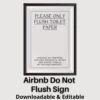When it comes to short-term rental platforms, understanding the unique features of Airbnb can significantly enhance your hosting experience. In this guide, we’ll explore essential Airbnb hosting tips that highlight what makes Airbnb different and how you can leverage these differences to your advantage. Whether you’re considering hosting for the first time or looking to refine your strategy, these insights will help you navigate the world of Airbnb with confidence.
Table of Contents
- Step 1: Understand the Unique Rental Options on Airbnb
- Step 2: Take Advantage of the Review System
- Step 3: Know the Review Policy
- Step 4: Leverage Host Insurance
- Step 5: Start with Airbnb for New Hosts
- Step 6: Maintain High Standards
- Step 7: Communicate Effectively with Guests
- Step 8: Set Competitive Pricing
- Step 9: Create a Welcoming Atmosphere
- Step 10: Stay Up to Date with Airbnb Policies
- Frequently Asked Questions
Step 1: Understand the Unique Rental Options on Airbnb
One of the standout features of Airbnb is its flexibility regarding rental types. Unlike other platforms, Airbnb allows you to rent out a shared space. This means if you live in a three-bedroom apartment, you can rent out just one room while still residing there. This unique aspect of Airbnb caters to a diverse range of hosts and guests.
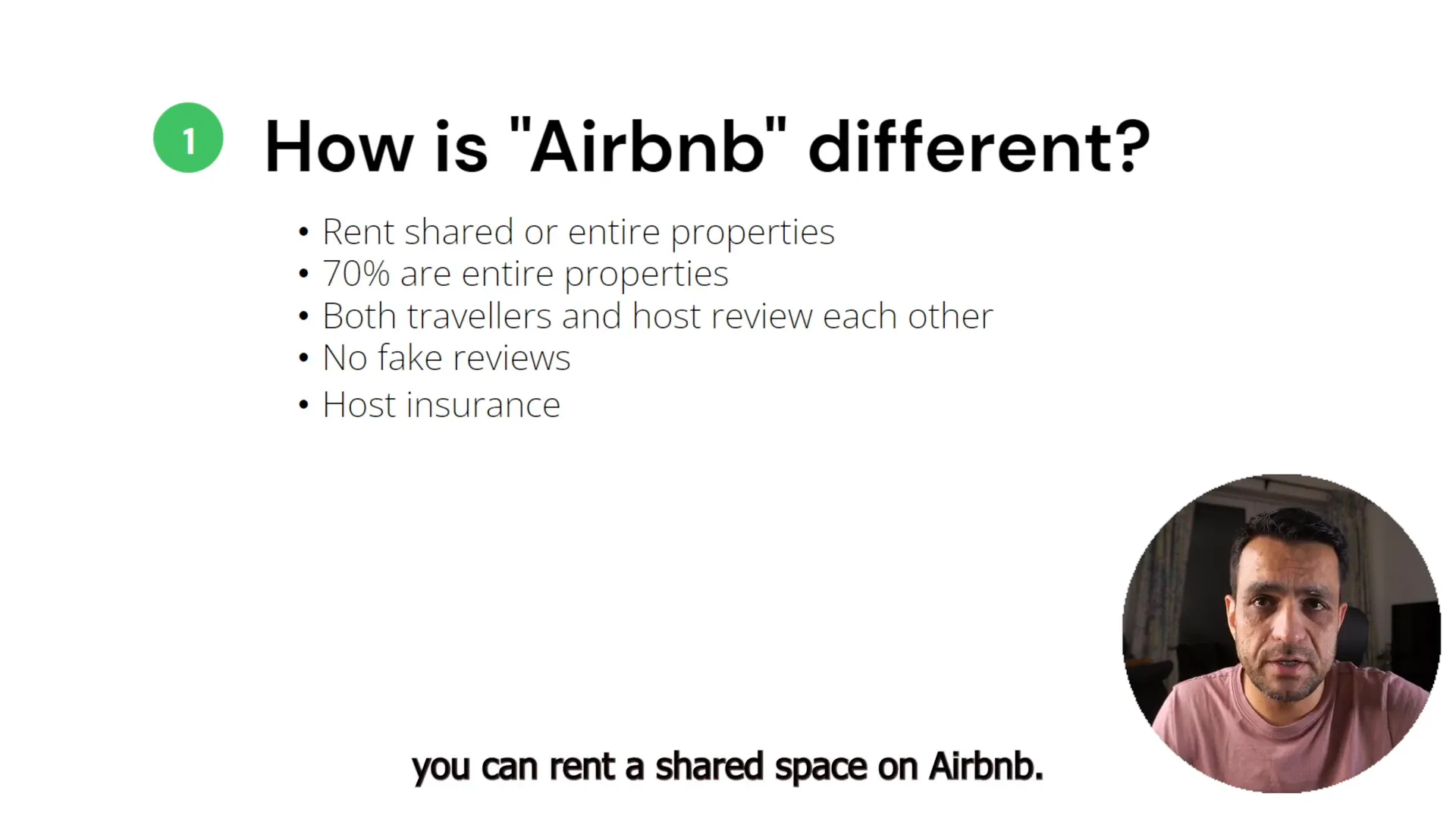
While shared spaces are a significant part of Airbnb’s offerings, it’s worth noting that 70% of the properties listed are entire homes, including apartments, houses, and cottages. This variety ensures that you can cater to different types of travellers, from solo adventurers to families looking for a complete home experience.
Step 2: Take Advantage of the Review System
Airbnb’s review system is another feature that sets it apart from other platforms. Unlike traditional hospitality models where only guests can leave reviews, Airbnb allows both hosts and guests to review each other. This bidirectional review system builds trust and accountability.
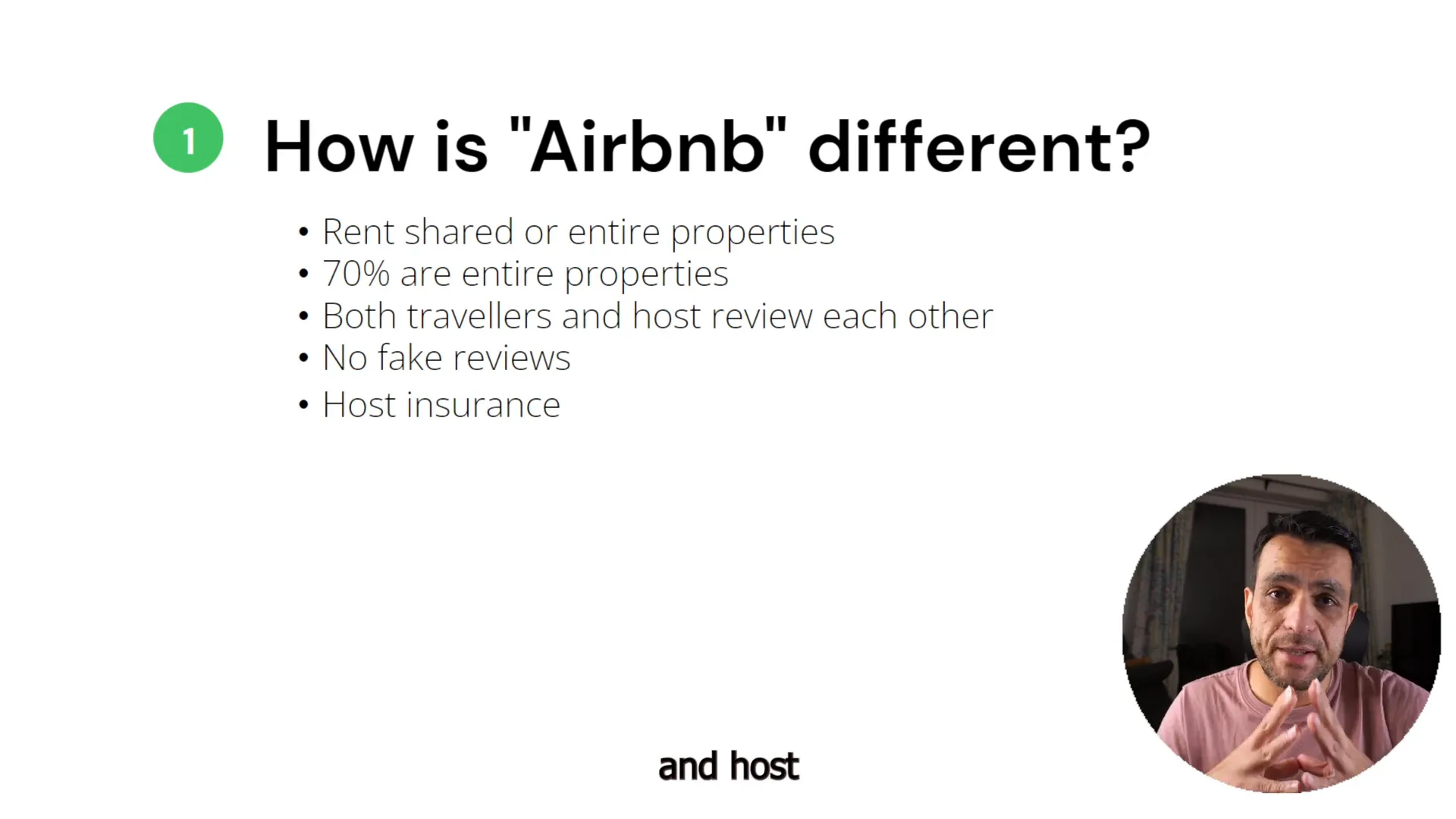
Before booking, guests can view detailed profiles, including travel histories and previous reviews. This transparency helps ensure a positive experience for both parties. Many other platforms struggle with fake reviews, but on Airbnb, reviews can only be left after a stay, making them more reliable.
Step 3: Know the Review Policy
Airbnb has a strict policy regarding reviews: they do not remove them. If a guest leaves a negative review, the host cannot get it taken down, although they can respond publicly. This policy is beneficial for potential guests as it ensures they see all reviews, good or bad, providing a more accurate picture of what to expect.
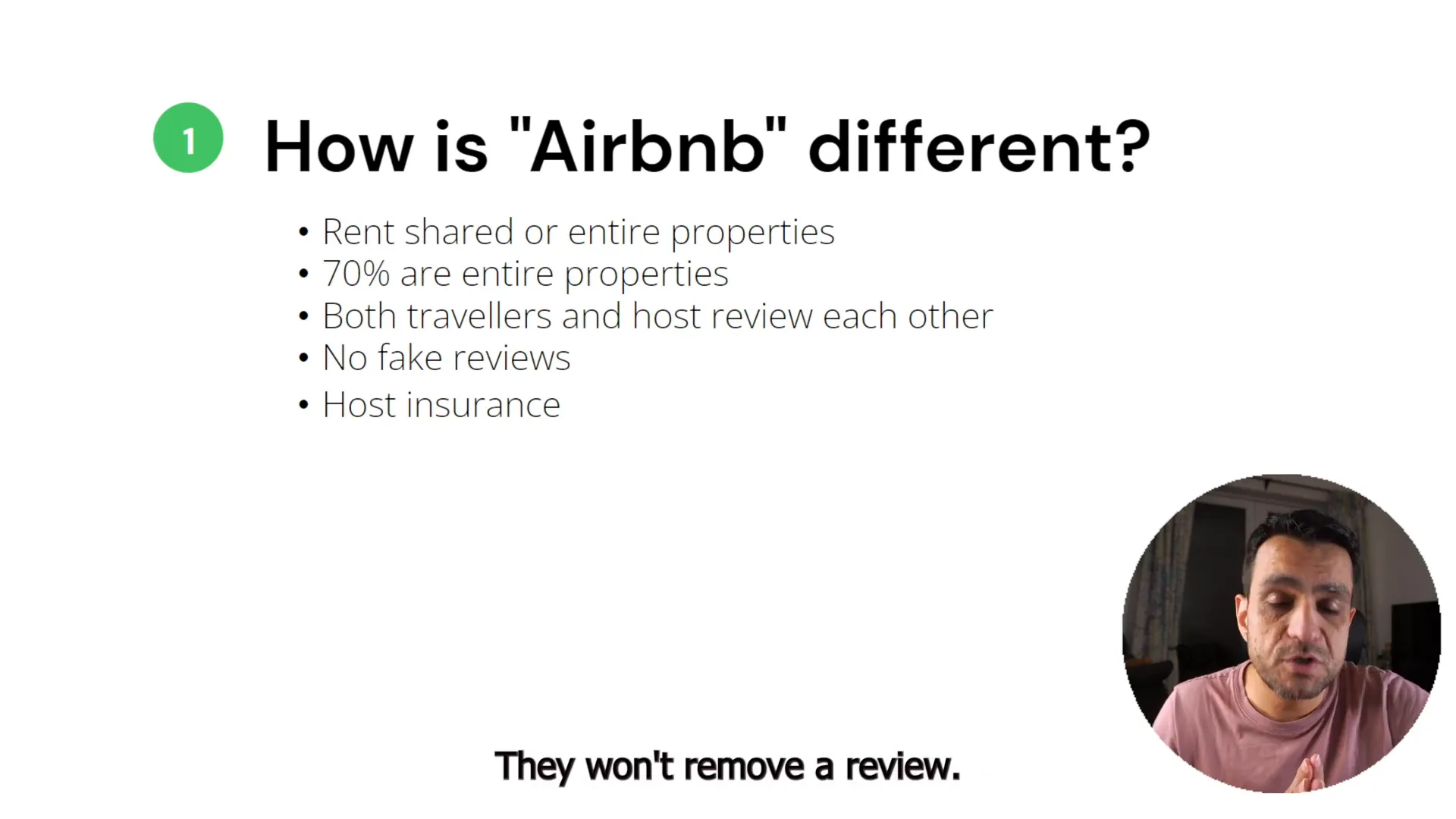
This policy also encourages hosts to maintain high standards, as they cannot erase negative feedback. As a host, this means you should focus on providing excellent service and a clean, welcoming environment to earn positive reviews.
Step 4: Leverage Host Insurance
Airbnb offers two types of insurance that are particularly advantageous for hosts: liability insurance and damage protection insurance, both up to $1 million. This level of coverage is unmatched by other rental platforms.
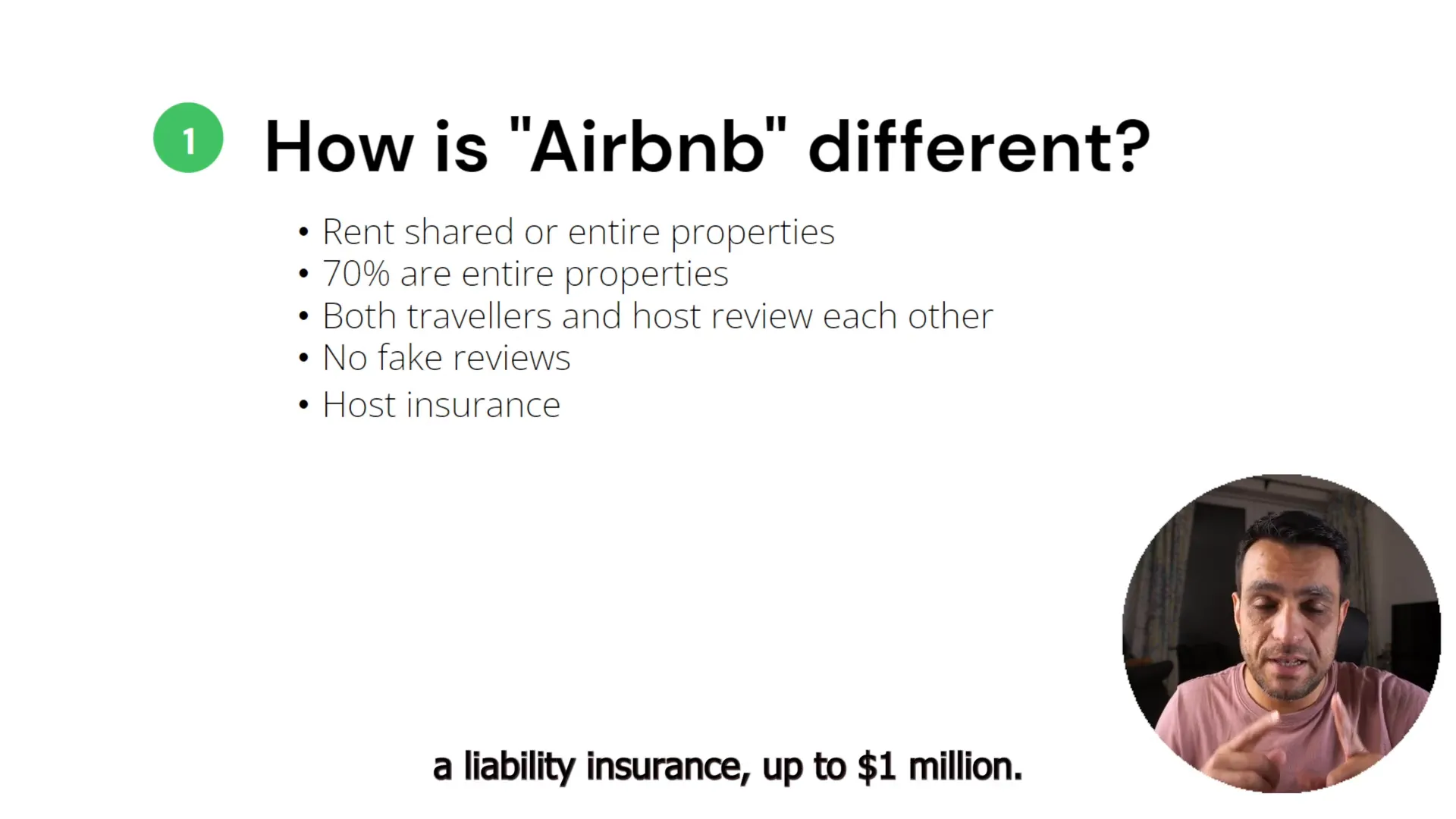
The damage protection insurance covers any potential damage caused by guests, which can be invaluable for your peace of mind. In contrast to other platforms where hosts may only set a damage deposit, Airbnb’s insurance can cover extensive damages that might occur during a stay.
Step 5: Start with Airbnb for New Hosts
If you’re new to the short-term rental industry, beginning your hosting journey with Airbnb is a smart move. The platform offers substantial protections and a user-friendly interface that can help ease you into hosting. Once you gain experience, you can explore other platforms that may have more complex operations.
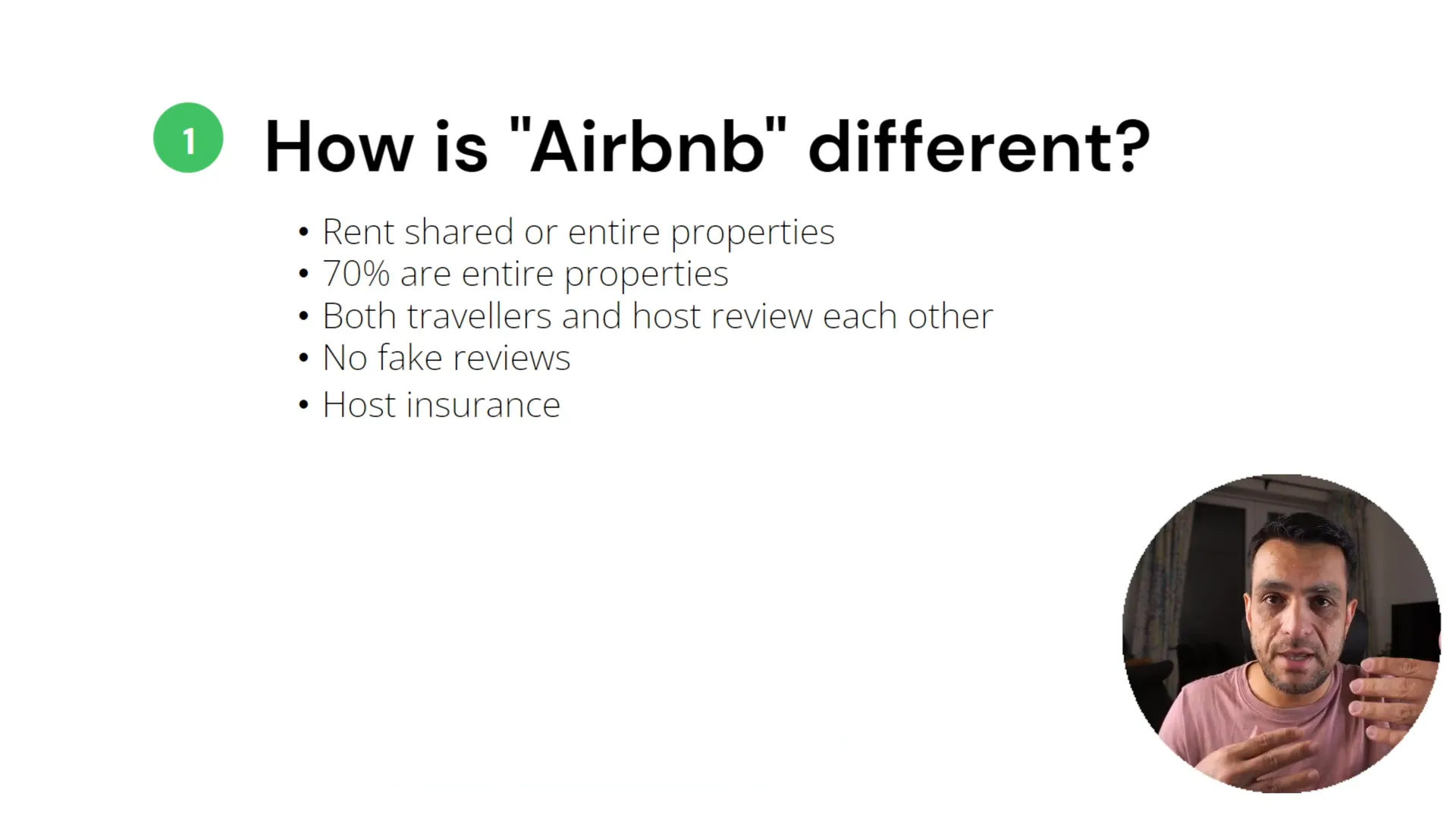
As you build your confidence in managing properties and dealing with guests, you can gradually expand your listings to other platforms. This strategy allows you to focus on mastering the Airbnb system first, which is a great foundation for future success.
Step 6: Maintain High Standards
To succeed on Airbnb, maintaining high standards is crucial. Regularly clean your property and ensure it is well-maintained. Guests often leave reviews based on cleanliness and overall experience, so these factors can significantly impact your ratings.
Step 7: Communicate Effectively with Guests
Effective communication is key to a successful hosting experience. Be prompt in responding to inquiries and provide clear check-in instructions. Consider using automated messaging tools to streamline communication and enhance the guest experience.
Step 8: Set Competitive Pricing
Pricing your listing competitively is essential for attracting guests. Research similar listings in your area and adjust your rates accordingly. You can use Airbnb’s smart pricing tool to help set dynamic rates based on demand, seasonality, and local events.
Step 9: Create a Welcoming Atmosphere
Guests appreciate a welcoming environment. Consider adding personal touches, such as local recommendations or small amenities like snacks or toiletries. These thoughtful gestures can lead to better reviews and repeat bookings.
Step 10: Stay Up to Date with Airbnb Policies
Airbnb frequently updates its policies and features. Staying informed about these changes can help you leverage new tools and ensure compliance. Regularly check the Airbnb community forums and updates to make the most of your hosting experience.
Frequently Asked Questions
What types of properties can I list on Airbnb?
You can list a variety of properties on Airbnb, including shared spaces, private rooms, and entire homes. The flexibility allows you to cater to different types of guests.
How does Airbnb’s review system work?
Both guests and hosts can leave reviews for each other after a stay. This system promotes accountability and transparency, helping potential guests make informed decisions.
What insurance does Airbnb provide for hosts?
Airbnb offers liability insurance and damage protection insurance, both up to $1 million, providing hosts with substantial coverage against potential risks.
Is it better to start hosting on Airbnb or another platform?
For new hosts, starting with Airbnb is recommended due to its user-friendly interface and comprehensive protections. Once you gain experience, you can explore other platforms.
How can I improve my listing’s visibility?
To improve visibility, ensure you have high-quality photos, write detailed descriptions, and maintain competitive pricing. Regularly updating your listing can also help attract more guests.
By following these Airbnb hosting tips, you can maximize your success on the platform. Embrace the unique features that Airbnb offers, and you’ll be well on your way to becoming a successful host.







